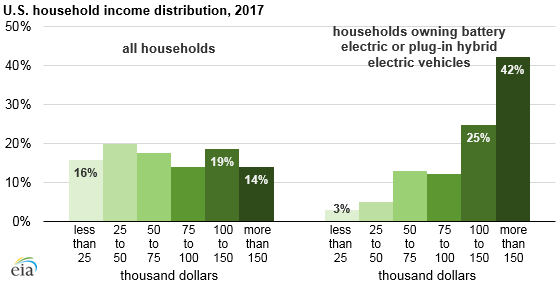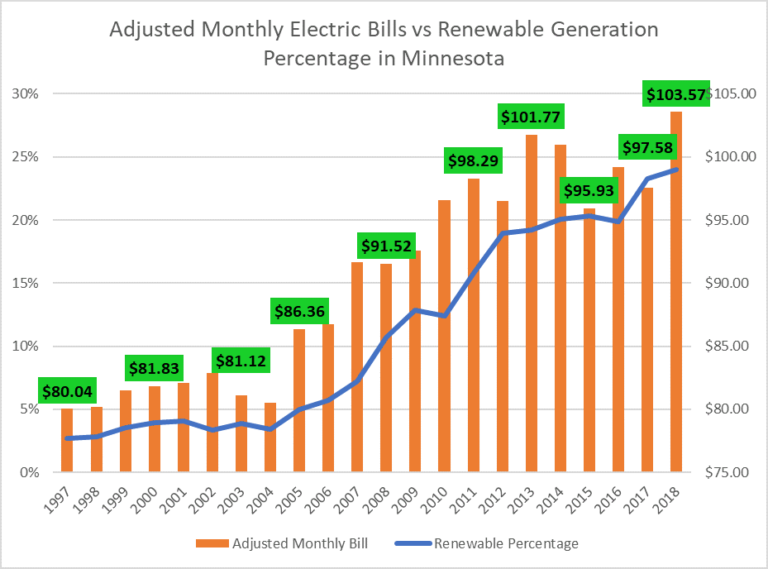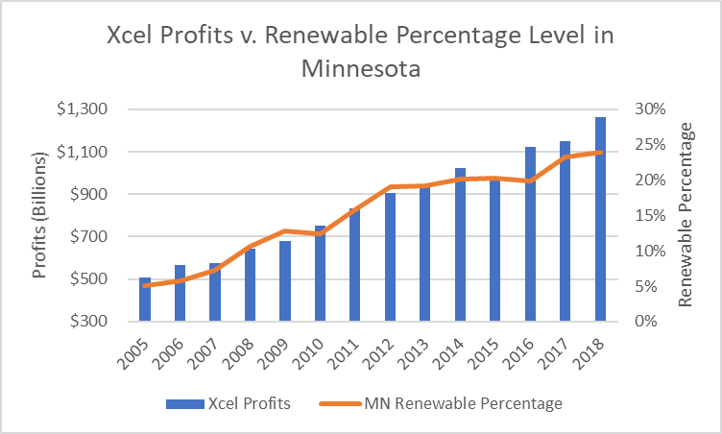Should EV Charging Stations Be Regulated as Utilities? Kentucky Joins Majority to Say ‘No,’ Minnesota Should Too
Last week, Kentucky regulators ruled that electric vehicle charging stations were not considered utilities under state law, according to Utility Dive. In doing so, Kentucky joins Iowa, Vermont and California in determining that chargers do not provide a public service in the same way that other electric services do.
This makes sense, because owning an electric car is a luxury item. The graph below from the Energy Information Administration shows most electric car owners make more than $100,000. Not surprisingly, most of the household that own electric cars also have a regular car. Therefore, the argument that electric car chargers are a vital public service does not hold water. In other words, everyone needs a refrigerator, but you don’t need an electric car or charging station.

Unfortunately, Xcel Energy wants to increase your electricity costs so they can make a guaranteed 7.5 percent profit on building electric car infrastructure. Remember, Xcel is not really a private company, they are a government-approved monopoly utility and you are forced by the government to buy your electricity from them if you live in their service territory. This means Xcel can keep inflating the cost of electricity by building more infrastructure and you have no other option to shop around for other electricity providers to lower your costs.
This is significant because electricity prices in Minnesota reached a new all-time high in 2018, exceeding $103 per month for the first time ever. The graph below shows electricity prices have skyrocketed since 2005, when Xcel Energy was first required to include renewable energy in their portfolio.

As Minnesota families and businesses have paid more for their electricity, Xcel’s profits have soared. The graph below shows Xcel’s profits increasing as more expensive renewable energy has been placed into service in Minnesota.

Xcel Energy likes to posit itself as a leader on climate change, but the true leadership they display is padding their profits by building wind and solar facilities that increase electricity prices for Minnesota families and businesses for no measurable environmental benefits. In fact, if Minnesota shut down all of its CO2 producing electric generators, it would avert 0nly 0.00073 degrees C by 2100, an amount too small to be measured with the most sophisticated scientific equipment.
Electric car charging stations are just the latest iteration of Xcel’s profit seeking behavior. Essentially, they want to increase your electricity bills so wealthy urban liberals can charge their electric cars to the farmer’s market. Minnesota regulators should heed the example set by California, Iowa, Kentucky, and Vermont by not allowing utility companies in Minnesota to incorporate electric car charging equipment into their rate-base.